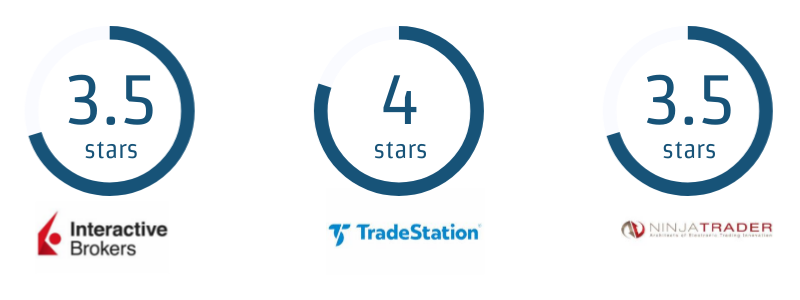
Many people are able to make huge gains in the stock market thanks to Jim Cramer's bullish stock market predictions. In this article, we'll cover the benefits of building a portfolio of cramer stocks. We'll also discuss the ways in which you can invest in these stocks. Read on to learn more. Jim Cramer's bullish stock-market predictions are well worth your attention. Here are some options to include cramer stock in your portfolio.
Benefits of having a portfolio that includes cramer shares
Jim Cramer, an iconic CNBC host has made it his profession to tell people which stocks they should buy. He believes that trades should be limited to those who can afford them. However, it is important for people to know their goals and avoid high-risk investments. Bear Stearns was, at one time, his favorite stock, but its value has dropped to over 80%.

A recent study by Wharton School showed that Jim Cramer’s Action Alerts PLUS Portfolio performed significantly better than S&P 500 Index over 17 year. In fact, the action alerts PLUS portfolio returned an average of 4% per year, while the S&P 500 Index averaged 7%. The difference between Jim Cramer's picks and the average return of the S&P 500 index is just 3%. The Cramer factor would be isolated by a short/long hedge fund-type ETF, but the stock wouldn't pop due to offsetting positions.
Jim Cramer's optimistic outlook on stocks
Cramer's bullish outlook for stock markets may be questioned by some investors. However, the numbers do not lie. Cramer's recommendation of stock trading investors has been successful for many. He made his money by buying Chevron and Occidental Petroleum stocks, two energy stocks. Other big investors such as Warren Buffett and Stanley Druckenmiller have invested in these stocks. Cramer also has a longstanding love for Apple, whose stock he holds in a charitable trust.
Jim Cramer enjoys a loyal following, but critics are wary of his investment philosophy. Many investors accuse him of being too fickle with his bullish outlook, and they note that he frequently switches between bearish and bullish positions. Cramer's bullish outlook is often criticized because he has experienced many failures. He once interviewed the CEO at Wachovia for his show. Despite the price decline, Cramer defended the stock in an interview on his show.
There are many ways to invest in crazier stocks
Today, it can be a smart idea to invest in cramer stocks. But how do you make these stock picks profitable? A former hedge fund manager and journalist, Jim Cramer has become a popular investor. He has a huge social media following and is known for his ability to spot quality companies. There are many ways to invest in his picks. Follow his YouTube or Twitter advice and you can get started.

Wharton examined Cramer’s picks, and found that his portfolio had been only 5% volatile than the S&P 500 index for the past decade. The study's authors argued that Jim Cramer’s picks were similar to the S&P from 2010 through 2010. However, they have fallen behind since then. In addition, Cramer's picks only returned 5.0% annualized, compared to 12.2% for the S&P 500 during the same period.
FAQ
What is the trading of securities?
The stock market allows investors to buy shares of companies and receive money. To raise capital, companies issue shares and then sell them to investors. Investors then sell these shares back to the company when they decide to profit from owning the company's assets.
The price at which stocks trade on the open market is determined by supply and demand. The price of stocks goes up if there are less buyers than sellers. Conversely, if there are more sellers than buyers, prices will fall.
There are two methods to trade stocks.
-
Directly from the company
-
Through a broker
What Is a Stock Exchange?
Stock exchanges are where companies can sell shares of their company. This allows investors the opportunity to invest in the company. The price of the share is set by the market. The market usually determines the price of the share based on what people will pay for it.
The stock exchange also helps companies raise money from investors. To help companies grow, investors invest money. Investors buy shares in companies. Companies use their money as capital to expand and fund their businesses.
Stock exchanges can offer many types of shares. Some of these shares are called ordinary shares. These are most common types of shares. These shares can be bought and sold on the open market. The prices of shares are determined by demand and supply.
There are also preferred shares and debt securities. Priority is given to preferred shares over other shares when dividends have been paid. These bonds are issued by the company and must be repaid.
What role does the Securities and Exchange Commission play?
SEC regulates brokerage-dealers, securities exchanges, investment firms, and any other entities involved with the distribution of securities. It enforces federal securities regulations.
What's the difference between a broker or a financial advisor?
Brokers are people who specialize in helping individuals and businesses buy and sell stocks and other forms of securities. They manage all paperwork.
Financial advisors are specialists in personal finance. They can help clients plan for retirement, prepare to handle emergencies, and set financial goals.
Banks, insurance companies or other institutions might employ financial advisors. You can also find them working independently as professionals who charge a fee.
You should take classes in marketing, finance, and accounting if you are interested in a career in financial services. It is also important to understand the various types of investments that are available.
Are bonds tradeable?
The answer is yes, they are! You can trade bonds on exchanges like shares. They have been doing so for many decades.
The difference between them is the fact that you cannot buy a bonds directly from the issuer. You must go through a broker who buys them on your behalf.
It is much easier to buy bonds because there are no intermediaries. This means you need to find someone willing and able to buy your bonds.
There are many kinds of bonds. While some bonds pay interest at regular intervals, others do not.
Some pay quarterly, while others pay interest each year. These differences make it possible to compare bonds.
Bonds can be very useful for investing your money. You would get 0.75% interest annually if you invested PS10,000 in savings. If you invested this same amount in a 10-year government bond, you would receive 12.5% interest per year.
If all of these investments were put into a portfolio, the total return would be greater if the bond investment was used.
Statistics
- Even if you find talent for trading stocks, allocating more than 10% of your portfolio to an individual stock can expose your savings to too much volatility. (nerdwallet.com)
- Ratchet down that 10% if you don't yet have a healthy emergency fund and 10% to 15% of your income funneled into a retirement savings account. (nerdwallet.com)
- Our focus on Main Street investors reflects the fact that American households own $38 trillion worth of equities, more than 59 percent of the U.S. equity market either directly or indirectly through mutual funds, retirement accounts, and other investments. (sec.gov)
- The S&P 500 has grown about 10.5% per year since its establishment in the 1920s. (investopedia.com)
External Links
How To
How to Invest Online in Stock Market
Investing in stocks is one way to make money in the stock market. There are many ways you can invest in stock markets, including mutual funds and exchange-traded fonds (ETFs), as well as hedge funds. The best investment strategy is dependent on your personal investment style and risk tolerance.
To be successful in the stock markets, you have to first understand how it works. This includes understanding the different investment options, their risks and the potential benefits. Once you are clear about what you want, you can then start to determine which type of investment is best for you.
There are three types of investments available: equity, fixed-income, and options. Equity is ownership shares in companies. Fixed income is debt instruments like bonds or treasury bills. Alternatives include commodities, currencies and real estate. Venture capital is also available. Each option has its pros and cons so you can decide which one suits you best.
You have two options once you decide what type of investment is right for you. The first is "buy and keep." This means that you buy a certain amount of security and then you hold it for a set period of time. The second strategy is "diversification". Diversification means buying securities from different classes. For example, if you bought 10% of Apple, Microsoft, and General Motors, you would diversify into three industries. Multiplying your investments will give you more exposure to many sectors of the economy. Because you own another asset in another sector, it helps to protect against losses in that sector.
Risk management is another crucial factor in selecting an investment. Risk management will allow you to manage volatility in the portfolio. A low-risk fund would be the best option for you if you only want to take on a 1 percent risk. On the other hand, if you were willing to accept a 5% risk, you could choose a higher-risk fund.
Learning how to manage your money is the final step towards becoming a successful investor. Planning for the future is key to managing your money. A good plan should include your short-term, medium and long-term goals. Retirement planning is also included. That plan must be followed! Do not let market fluctuations distract you. You will watch your wealth grow if your plan is followed.